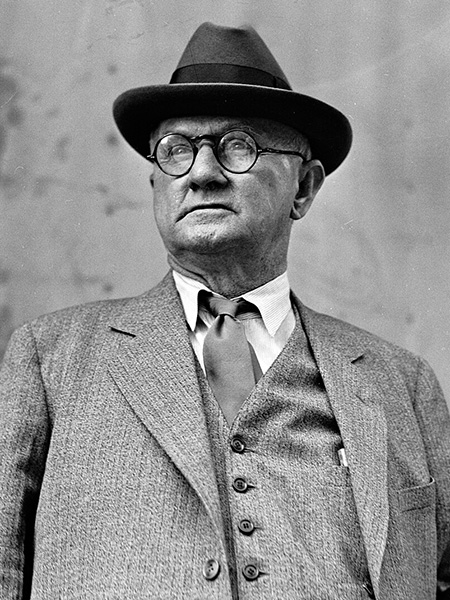Chief engineer for the Hoover Dam

Elwood Mead earned three Purdue degrees: a bachelor's degree in agriculture, a master's degree in civil engineering, and an honorary doctorate in 1882, 1888 and 1904, respectively. Mead began his career as a professor, teaching the first class in irrigation engineering in the U.S. He then moved into public service, working as Wyoming’s state engineer from 1888 to 1899. Next, he was appointed head of irrigation investigations for the U.S. Department of Agriculture. In 1911, Mead joined the University of California faculty as a professor in rural institutions. His contributions to engineering and public service were recognized further when he was appointed commissioner of the U.S. Bureau of Reclamation in 1924. As commissioner, Mead served as chief engineer for construction of the Hoover Dam, one of the most iconic engineering feats of the 20th century. Mead's legacy as an engineer, educator, and public servant continues to be celebrated. In honor of his significant impact, the reservoir formed by the Hoover Dam on the Colorado River was named Lake Mead.
